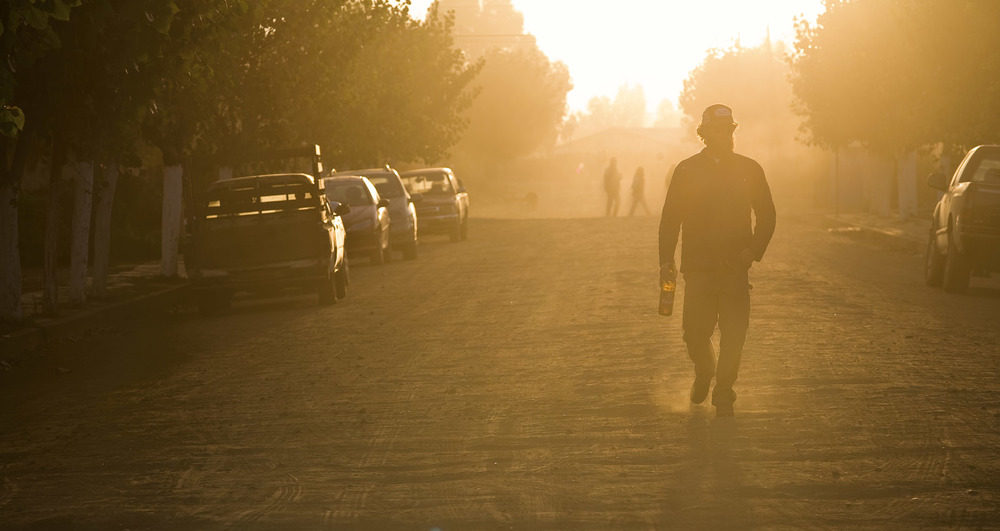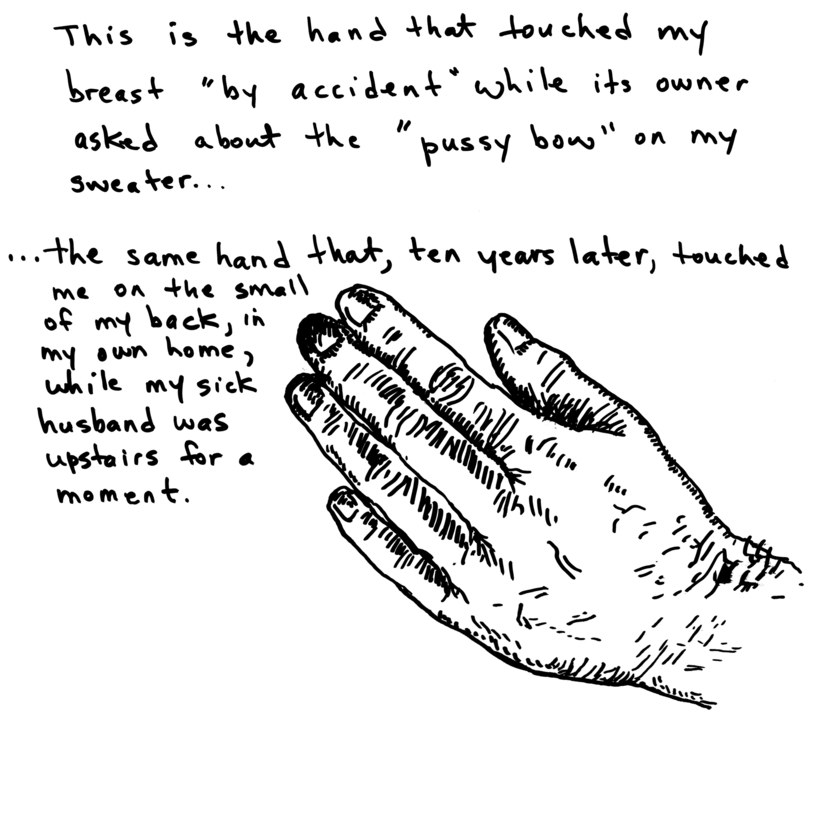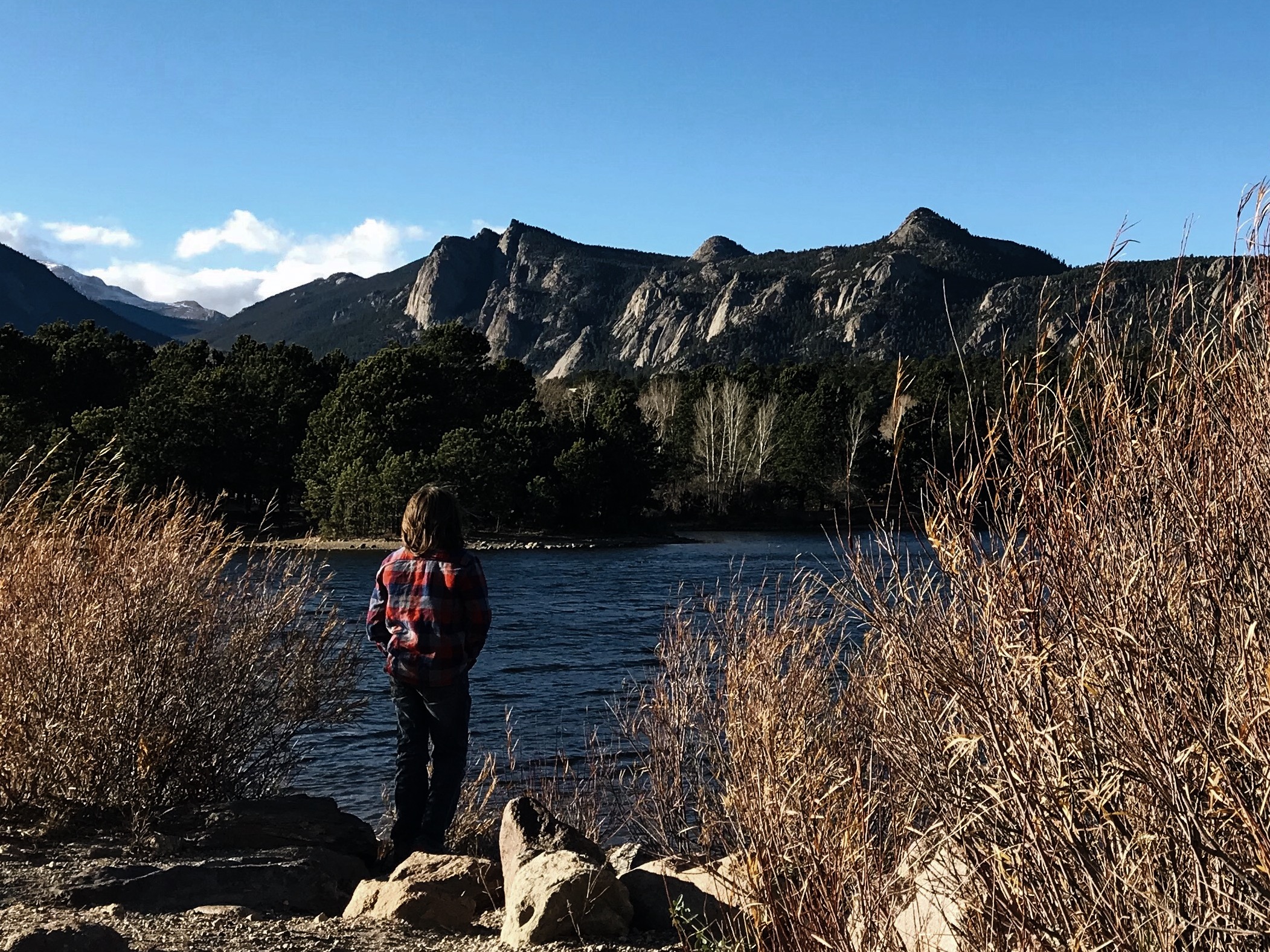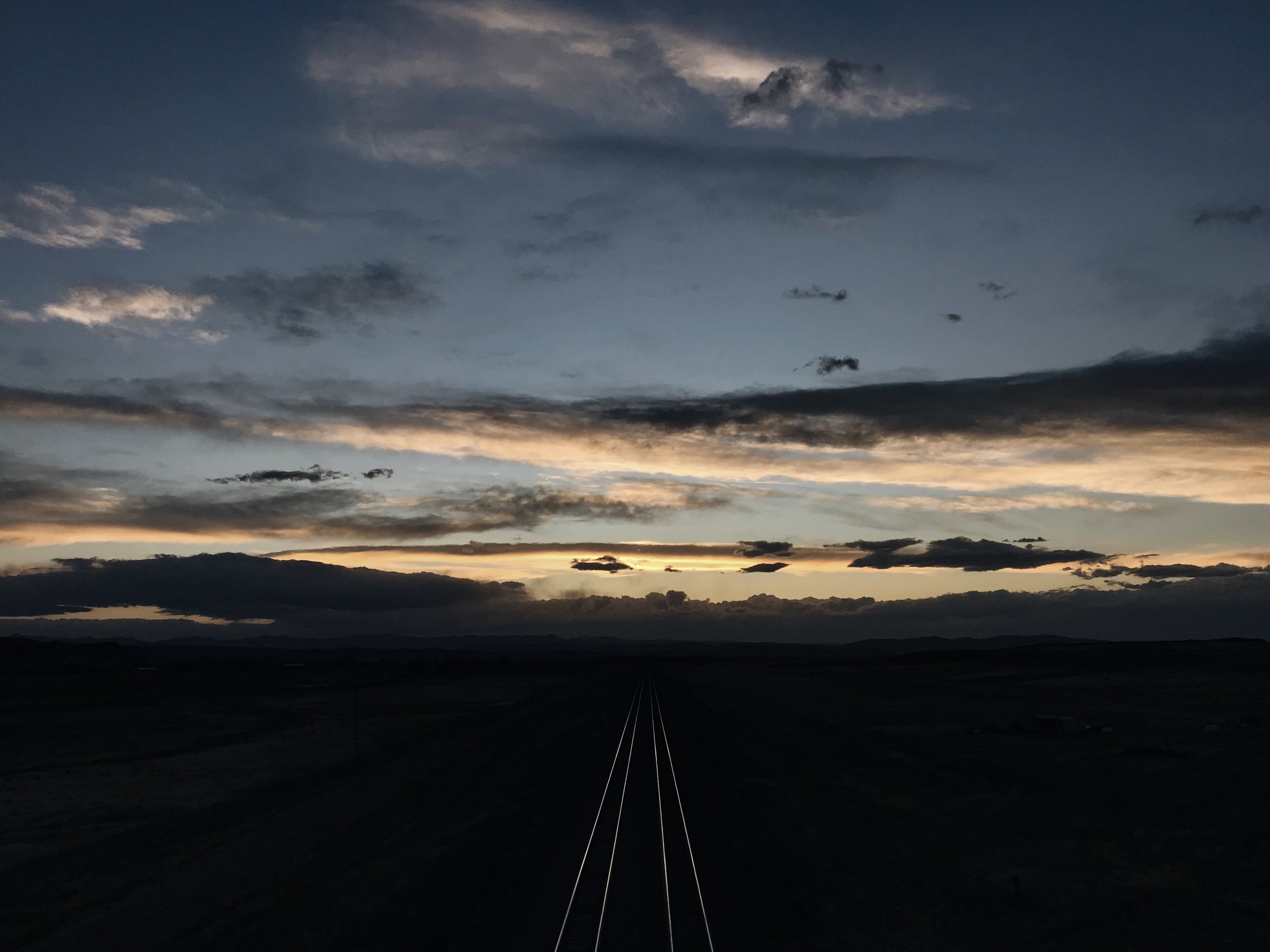But this picture does. Completely. Judah even picked up on it, "What's so great about cranes?" he asked. But he didn't see what I saw: a little cropping on the left to cut off the construction, a kneeling down to place the bush in front of the house, and of course, a clever little title about fresh mountain air on a crisp fall day with the family.
Never mind the highway behind us or the golf course to the far right.
You don't see those things, only Judah and I do, but in recent days I've begun to wonder if, over time, he won't see them either. Rather, when he stumbles across this picture, I wonder if he'll only see the blue lake and towering mountain. If instead of talking about the construction that surrounded this picture, he'll recall surprising his auntie at University, picking out pumpkins at an old pumpkin patch farm, and playing UNO, in a cabin, long after Dad wanted to go to bed. I wonder if, when he looks back on this weekend, he'll remember the singing to our family's favorite tunes, reading Harry Potter in the front seat of the van, and watching tumble weeds bounce across the windy roads. Because, at the end of it all, the crane doesn't matter, and his mind will subconsciously crop it out.
However, when I look back on this weekend, I will forever see the cranes, the squeaky breaks that I can't afford to fix, the meals we had to budget, and the gas we had to syphon from some car in the middle of the night because we couldn't afford to fill our tank. But so what. It was worth it. And I'd do it again next weekend if I could.
Judah wasn't sheltered from those things, he was there with us, listening to our conversations and having to hear "no, we can't afford that." He even held the hose to the car while I sucked the gas out, but I don't think he'll remember those moments, and if he does, he will for sure remember them with a different tone, just like when I was his age my dad lost his wallet during the first few days of our two-week journey out West. I remember him losing it, looking for it, and I vaguely recall a discussion between him and Mom as to how to handle it. But that's it. What I remember more is the camping, the hiking, evening fires, eating every meal, sleeping warmly, and playing cards with my family. Whatever happened to the lost credit cards and driver's license, I've never known; how Dad payed for everything never crossed my mind, because it never seemed to cross his. And we had a great time.
By the way, Judah and I never syphoned anyone's gas, so relax. We did, however, pee behind the KOA cabin instead of walking to the bathroom. Which isn't even close to the same thing.
On the drive home, with The Lumineers blaring, I had some time to think about the weekend, and one of the thoughts that crossed my mind was this: what if kids collect memories of family and security not because they're sheltered from the harsh realities, but because they experience them with their parents, along side their parents, watching and evaluating, and then responding and feeding off of how they respond.
What if Judah and Eden and Zion hear, over and over, "we can't afford that" but still experience a great time with rocks, simple lakes, and free parks? What if while they color and draw the scene that passes outside their window, they overhear Mom and Dad discussing - arguing even - budgets and plans and schedules, then watch them kiss and laugh and reconcile? Doesn't that teach them how to argue? How to work through conflict? And how to find the simple joys amidst life's many limitations?
Doesn't that teach them how to be human?
I think so. I think it teaches them that Mom and Dad are fallible, that we make mistakes and seek forgiveness, and that we don't need money or gadgets or things to enjoy life and each other. I think it instills a sort of subconscious safety-net for their fragile minds that reminds them that no matter how much they fail or struggle or fall short, we're still here, that we're still a family, and as such, we're gonna go camping.
In the future, if and when my kids do look back and remember the cranes, I don't want won't lie to them, I won't tell them they're not remembering it clearly or that they just need to remember the lake and mountains and "forget about the cranes." Because they were there. They were part of the scenery, part of the adventure, but we enjoyed the mountains and pumpkins anyway.
Because that's what families do.
For more on . . .
-N- Stuff : The Mountains have a Way : On Parenting
BE SURE TO SCROLL DOWN AND SUBSCRIBE - THANKS FOR READING!














































